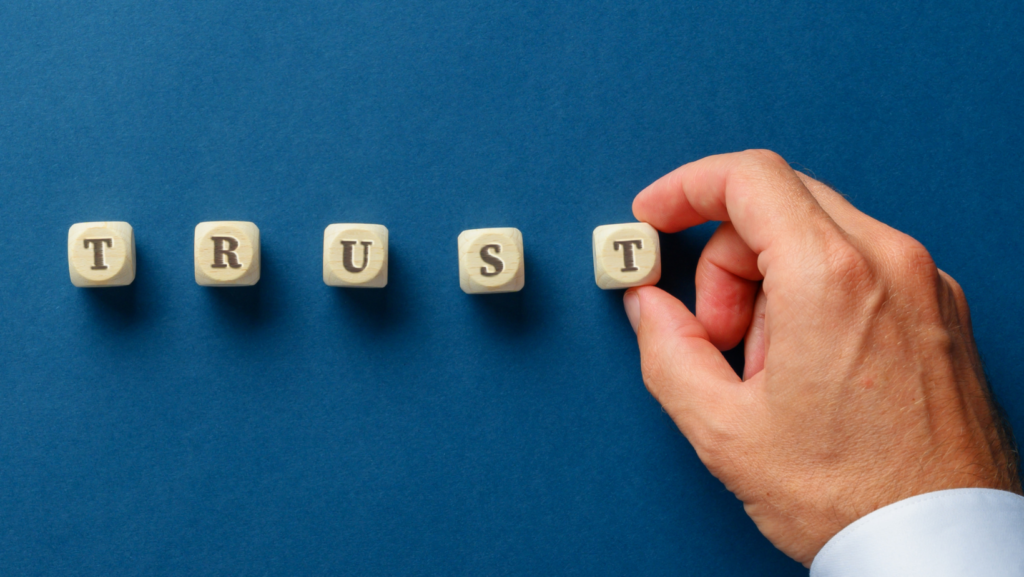Think about the person you trust the most. Their face, their name—it’s likely an individual who you don’t hesitate to share your innermost thoughts and feelings with. However, take a moment to ponder this: Is this the same person you often find yourself disagreeing with? The one you engage in passionate arguments with and still come out on the other side with your bond intact? Chances are that your answer is a resounding “yes.” This paradox unveils the incredible power of trust in relationships.
Unveiling the Power of Trust
Trust is the invisible thread that weaves relationships together. When we trust someone deeply, we can communicate with them without hesitation or fear of judgment. It’s the bedrock of intimacy, vulnerability, and authentic connection. That person you thought of, the one you trust the most, they’re likely someone you can argue with yet remain secure in the knowledge that your relationship can withstand even the fiercest of debates. This unique relationship dynamic showcases the real strength of trust—a bond so robust that it withstands disagreements.
Unencumbered Communication: The Crown Jewel of High Trust
The biggest benefit of high trust is unencumbered communication. It’s like a serene river flowing smoothly, unblocked by rocks or obstacles. You can speak your mind, express your opinions, and reveal your feelings openly. This level of communication is like a breath of fresh air in a world where we often filter our words and thoughts to avoid conflict or judgment. Unfiltered communication allows for genuine understanding and deeper connection.

Benefits of a Highly Trusting Relationship
But the advantages of trust go beyond just communication:
Collaboration and Innovation: In environments of trust, people feel safe to share their ideas and take calculated risks. This fosters a culture of innovation and collaboration, where individuals feel empowered to contribute their unique perspectives without the fear of criticism.
Efficiency and Productivity: Trust eliminates unnecessary layers of skepticism and micromanagement. When people trust each other, they can work more efficiently, focusing on their tasks instead of second-guessing their colleagues.
Conflict Resolution: Trust facilitates effective conflict resolution. When trust exists, conflicts can be addressed openly and respectfully, leading to resolutions that consider all perspectives and maintain relationship harmony.
Positive Atmosphere: Trust contributes to a positive and supportive atmosphere. It nurtures a sense of belonging and camaraderie, leading to increased job satisfaction and overall well-being.
ExeQserve can help you build trust among team members. Check out our customizable Team Building Programs
Building a Strong Foundation of Trust
Creating high levels of trust isn’t a one-time task—it’s an ongoing commitment. Here are some strategies to build and nurture trust within the people you work with:
Mutual Familiarity: Get to know each other beyond just work-related matters. Share personal experiences and interests, allowing for a deeper understanding of each other’s values and motivations.
Opportunity to Show Care: Small gestures can make a big impact. Taking the time to ask about someone’s well-being or showing genuine concern during challenging times demonstrates your care and builds rapport.
Clear Expectations and Norms: Set clear expectations for roles, responsibilities, and behavior. When everyone knows what’s expected, misunderstandings are minimized, and trust is fortified.
Respect for Norms: Respecting established norms or boundaries is crucial. Whether it’s punctuality or privacy, honoring these norms fosters an environment of respect and consideration.
Consistency and Reliability: Be consistent in your actions and promises. Demonstrating reliability earns trust over time as others see that they can count on you.
Honesty and Transparency: Communicate openly and honestly, even when discussing difficult topics. Transparency builds credibility and reassures others that you have their best interests at heart.
Building trust requires time and effort, but the rewards are invaluable. As you invest in cultivating trust within your professional relationships, you’ll witness firsthand the transformational impact it can have on communication, collaboration, and overall satisfaction.
Trust is the cornerstone of any successful relationship. It empowers unfiltered communication, encourages collaboration, and fosters a positive atmosphere. By taking steps to establish mutual familiarity, demonstrating care, setting clear expectations, and respecting norms, you can create a culture of trust that enhances both personal and professional connections. So, let’s embark on this journey of building trust—a journey that promises stronger relationships and a more harmonious world.
Leaders play an important role in trust building. Check out ExeQserve’s courses to help build Leadership competencies.










